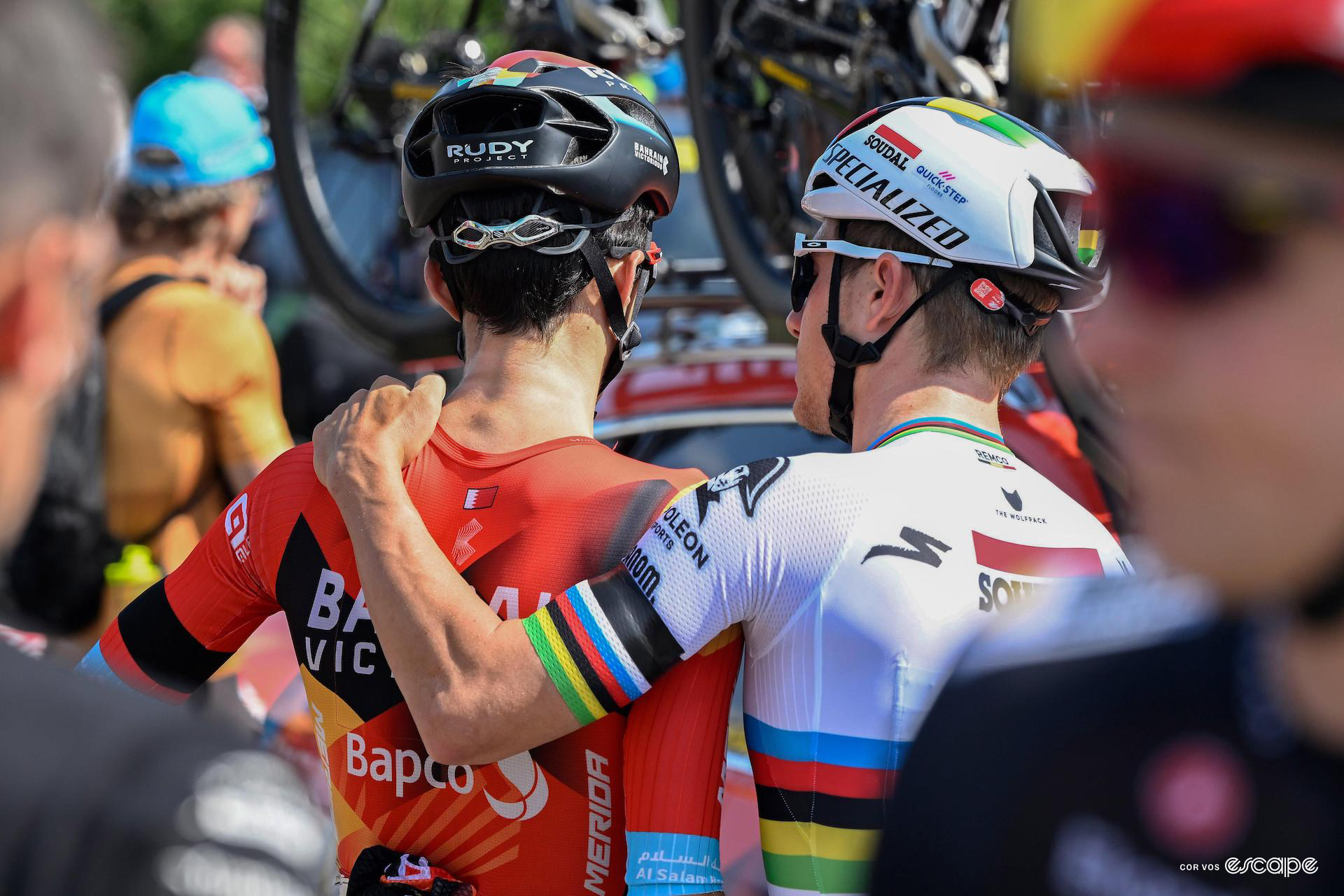In the aftermath of Gino Mäder’s tragic death at the Tour de Suisse, the cycling world has once again been forced to confront the very real safety concerns faced by riders on a daily basis. With that in mind, Dutch newspaper Algemeen Dagblad reports that a new independent body will launch prior to the Tour de France.
“Those bowed heads again. Those tearful faces again,” wrote Thijs Zonneveld, former pro turned journalist, as he brought attention to the new organisation on Saturday morning. “Again that veil of his silence. Again those black and white photos, again those powerless words, again that emptiness of a peloton that lost a rider forever. Another black day, another fallen rider who never gets up again. Again that desperate discussion about whether the accident could have been prevented.”
By the very nature of the sport, rider safety is an issue as old as bike racing itself. It’s a constant source of discussion, and yet there’s a lack of clear policy, with the loudest discourse nearly always left until it’s too late.
“While other sports such as Formula 1 already started working seriously decades ago to make races safer, cycling seemed to accept that deaths and injuries are simply part of it,” Zonneveld continued. “But that now seems to be coming to an end. Several sources confirm that before the start of the Tour de France, a new, independent body will be launched to improve safety in cycling.” The working name is SAROC, an acronym for Safe Road Cycling.
According to Zonneveld, SAROC is a collaboration between the management of a number of teams – including Patrick Lefevere of Soudal Quick-Step and Jumbo-Visma’s Richard Plugge, along with Team DSM, and Ineos Grenadiers – with the support of UCI president David Lappartient and prominent race organisers like Flanders Classics CEO Tomas van der Spiegel. The costs of running this independent body will reportedly be shared across all participating teams, race organisers and the UCI.
The project reportedly has roots in Fabio Jakobsen’s horrifying crash at the 2020 Tour of Poland. Pro cycling has long lacked the kind of comprehensive injury data of other sports, and Zonneveld reports that one of the first initiatives was a compilation of a database of crash and near-crash incidents. That analysis reportedly showed incidents are caused by two roughly equal factors: features of the race course; and the behaviour of participants, including riders and race vehicles.
The role of the SAROC will be to advocate for and organise much stricter and more consistent punishments for in-race incidents, as well as employing dedicated professionals to conduct thorough inspections of race routes and their safety measures well in advance of the event taking place.
Many of the details remain unknown, including what reforms will be recommended, and how those and punishments for in-race incidents will be enacted by an independent body. Similar independent organisations, like the Movement for a Credible Cycling (MPCC) have attempted to self-govern with mixed results.
But especially after a week marked by the tragedy of Mäder’s death and the organiser’s startling lack of concern for rider safety at the CIC Tour des Pyrenees before the UCI canceled it, any and all improvements would be welcome. As Zonneveld wrote, it’s too late in many ways, but the hope is that a dedicated and strategic approach from within the peloton will make the sport safer for “future Ginos.”
What did you think of this story?

